The 36th Domon Ken Award Winner: Seung-Woo Yang
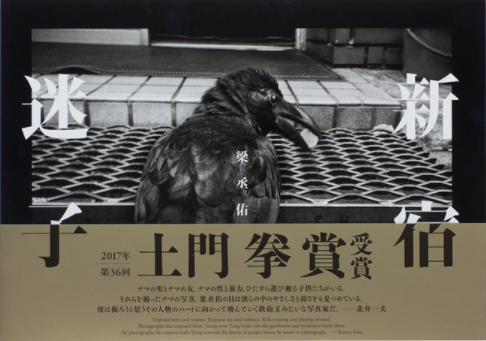
We are pleased to share the good news that "Shinjuku Lost Child" by Seung-Woo Yang received The 36th Domon Ken Award!!
The Domon Ken Award Ceremony was held at Mainichi Hall on April 20. Zen Foto Gallery is pleased to attend the ceremony and was invited to give a congratulatory speech. Below is the message by Mark Pearson, we would like to share our joy with you.
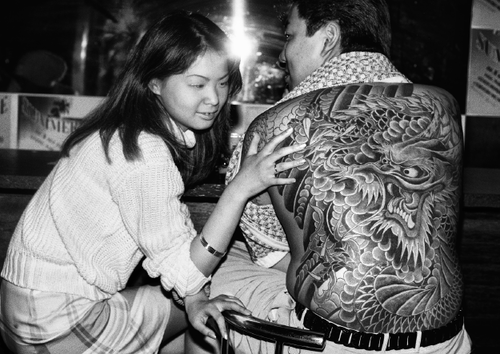
I have known Seung-Woo Yang since the early days after opening Zen Foto Gallery in 2009. He brought his work, covering a range of subjects, including his return to his native Korea to photograph his old friends and his old haunts when he was a tearaway teenager, to the photographs of Kabukicho in Shinjuku. When we look at these works, we experience the fascination of observing a world that we are fearful of knowing. We are amazed that Yang could not only be there but also even take photographs in those places and at those times. He also showed us a more gentle side in his other photographs, notably of his homeless friend Gonta-san and of his girlfriend, later his wife.
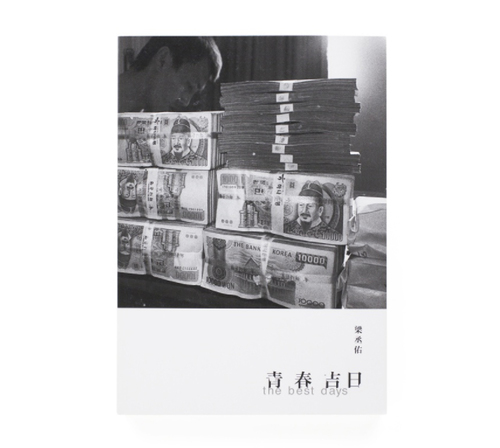
We are privileged to have published three books of work by Yang so far. “The Best Days” is about Yang's return to Korea to meet up with and photograph his former associates, some of whom have gone on to be involved with underworld activities. Yang tells us that if he had not left Korea for Japan he would have been unable to extricate himself from ever deeper involvement with the gangs, a path that has cost one of his closest friends his life and where surviving friends live in the shadow of dishonesty and exploitation, prison, gang violence or worse. Yet his work reveals a yearning and a sympathy for those he left behind.
In 2011 we published “Youre here and Im there”, which is Yang's second book featuring his friend Gonta. This is a touching, poetic and humorous portrait of a homeless man, who grew up in a troubled family and has not been able to fit into normal society. In their different ways, both Yang and Gonta are misfits. Yang left his home, left his friends and left his way of life behind to live in a foreign land and to make a new life as best he could. But today's Japan is a very uniform and conventional place that is unforgiving on those who do not fit into its norms.
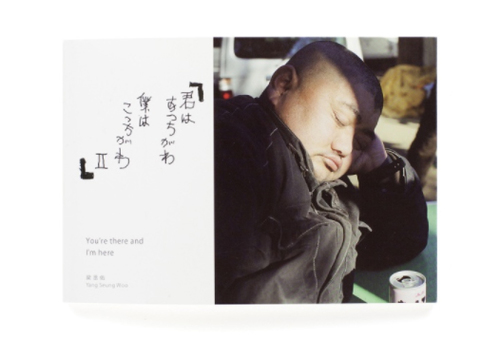
Then last year we worked together on our third book with Yang; “Shinjuku Lost Child”. This includes photographs that Yang has taken in more recent times, in the streets of Shinjuku, encountering the mob,the drifters, the bar girls and their children who roam the streets of Kabukicho while young mothers work their late nights and early mornings.
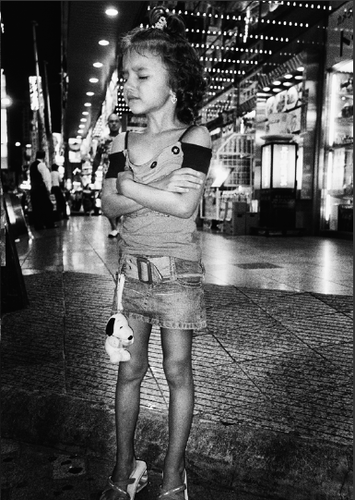
Yang somehow knew that to save his own life he must irrevocably cut the ties that were enveloping him as a young mobster-to-be. Yet he could not forget the enervating excitement that he had known as a teenager and was drawn back again and again to taste this same thrill as a photographer in the streets of Kabukicho.
Mark Pearson
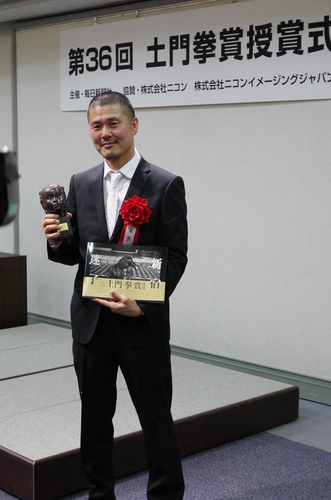
See more pictures|Video of Yang's Speech
Photobooks by Yang Seung-Woo